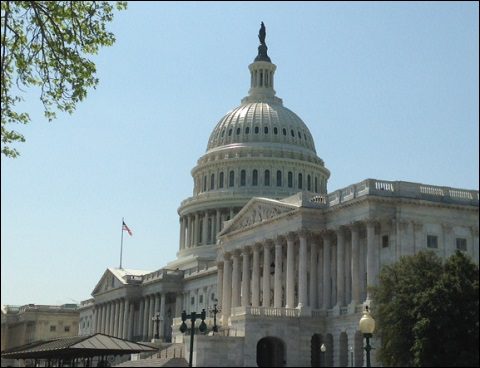Congress approved both a two-year budget deal Feb. 9 that sets higher spending levels, and a six-week stopgap funding bill that keeps funding for most programs at 2017 levels through March 23 to give lawmakers time to pass a detailed appropriations measure in coming weeks.
The budget deal includes $20 billion over the two years in additional funding for various types of infrastructure including surface transportation, but provides no details on how those dollars would be distributed among infrastructure categories.
And it eliminates, for fiscal 2018 and 2019, spending caps or “sequesters” that would have required across the board reductions in certain types of federal funding for transportation and other programs, including for infrastructure project grants.
The budget deal increases federal spending by $300 billion over the next two years. According to Politico, defense spending will increase by $80 billion in the current fiscal year, and another $85 billion in fiscal year 2019. Meanwhile, domestic spending will grow by $63 billion in the current year, and $68 billion next year.
However, the latest in a series of short-term “continuing resolutions” will mean state departments of transportation will not have access to full-year federal funding for the next six weeks, at a time many are moving ahead with their spring construction projects.
And states will not have access to federal-aid highway funding for the CR period of Feb. 9 through March 23 until the Federal Highway Administration issues another notice to distribute additional pro-rated obligation authority.
The FHWA on Feb. 2 issued such a notice covering the period from Jan. 19, when an earlier CR expired, through Feb. 8.
In the new CR, lawmakers also approved $89.3 billion in new disaster aid, mainly targeted at states and territories that were struck by hurricanes last August and September.
It includes $1.828 billion in additional disaster funding for the USDOT, with $1.374 billion for the FHWA’s emergency relief program to make repairs for highways damaged by disasters. Another $330 million is designated for the Federal Transit Administration’s emergency relief program to cover operating and capital costs for transit systems disrupted by hurricanes Harvey, Irma and Maria.
In addition, the measure provides the Federal Aviation Administration with $114.6 million, of which $35 million is to support operations, communications equipment and security at airports affected by those hurricanes, while $79.6 million helps replace equipment and navigational aids and make facility repairs to hurricane-damaged airports.
The disaster aid package provides $10 million to the Maritime Administration for its Ready Reserve Fleet port facility in Beaumont, Texas, which was damaged by Hurricane Harvey.

